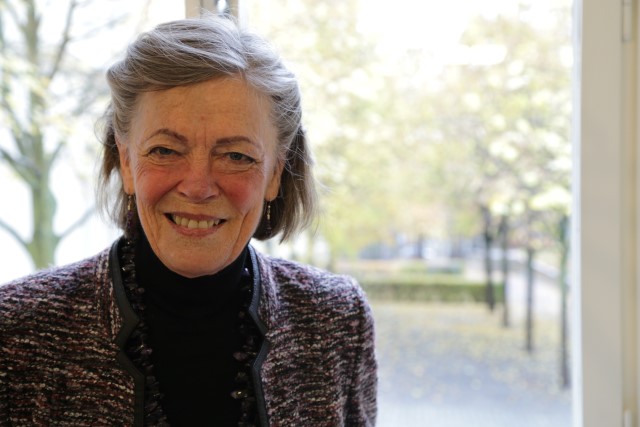In GWP’s early days, Gunilla Björklund was part of the Founding Committee of the World Water Council (WWC). Both WWC and GWP were founded in 1996. In 2004, a Memorandum of Understanding (MoU) was signed in which the organisations described themselves as “complimentary”.
“There were many interconnections between the two organisations from the start but with different objectives. WWC focused on laws; projects and programmes were important for GWP,” explains Björklund. Projects and programmes are still key to GWP’s mission: “GWP is very active and with a wide spread in the field; this is what makes the network strong,” says Björklund.
From Swedish Government to International Assignments
Her own background reflects strong international experience in water issues. Having studied natural science and hydrology, she worked as an assistant professor in Physical Geography at Uppsala University in the 80s, before joining the Swedish government. There she took part in negotiating the UN Agenda 21, including the freshwater chapter for Sweden in the Rio process. She left government in the mid-90s to become Executive Secretary for the UN “Comprehensive Assessment of the Freshwater Resources of the World”, which was delivered at the UN General Assembly Special Session (UNGASS) in 1997.
After this she started GeWa Consulting, through which she continues to carry out consultancy work for a number of international organisations. She was an external advisor for an internal Assessment of the GWP Strategy 2009-2013.
In 2014 she was appointed as a member of the GWP Steering Committee – they are 13 in total – which acts as a board of directors. For instance, one of their tasks is to approve the upcoming 2017 work plan and budget. They also look at the 3-year work programme (2017 – 2019) including the GWP Change Agenda, where they have to agree on content and timeline.
“The Change Agenda will gear GWP’s contribution towards meeting the Sustainable Development Goals (SDGs)”, says Björklund.
Global and Regional Perspectives
SC members are appointed for three year terms, and they come from different backgrounds and countries and regions. This is important to keep both a global and regional dimension to the committee’s work.
Björklund provides a Swedish perspective – which is key since the global secretariat is based in Stockholm, with strong support from the Swedish International Development Agency (Sida) – but also a UN perspective through her involvement with many UN agencies. Björklund believes this combination of expertise is a great advantage for GWP because it represents much of what the network is all about: diversity and connections.
“These are things that GWP needs to keep nourishing, we need to be creative with our connections to stay strong”, she says. She acknowledges that this is a continuous challenge, but it is also what keeps the network together – the ability to evolve and keep up with changing times.

